Transparency, accountability and effectiveness of public procurement in Central Asia: civil society recommendations
Central Asia has emerged as an unlikely region for open contracting reforms. Kazakhstan and Kyrgystan have started publishing open data on public procurement over the last year for the first time. Civil society organizations are taking note. They have started analyzing newly available data and are building new tools to make information more accessible (which we supported with our recent innovation challenge). But countries still need more work for fully transparent, accountable and efficient procurement systems. Sole-source contracts are still high, skill levels especially at the local level low, and key spending such as on healthcare often remains opaque.
In July, as part of the Social Innovations in Central Asia program funded by the USAID, we brought experts and civil society organizations together in the first-ever Regional Transparency Forum for Central Asian Countries to discuss budget transparency, openness and effectiveness of public procurement, features of local self-government, why civic engagement matters, and more. A general resolution summarizes the recommendations.
Overall, forum participants noted that transparency in the public procurement sector in the Central Asian region is fairly high, with a good level of access to information and, frequently, public procurement data. However, this openness only paints half of the picture. For instance, published terms of reference often fail to provide a clear picture of what the planned purchase entails. Likewise, signed agreements and their terms, as well as information on their implementation, are not always accessible. For this reason, and despite the general transparency of the public procurement sector in the region, key parts of the procurement process remains opaque and bars citizens and civil society organizations from providing oversight and accountability.
Creating a transparent, accountable, and effective public procurement system
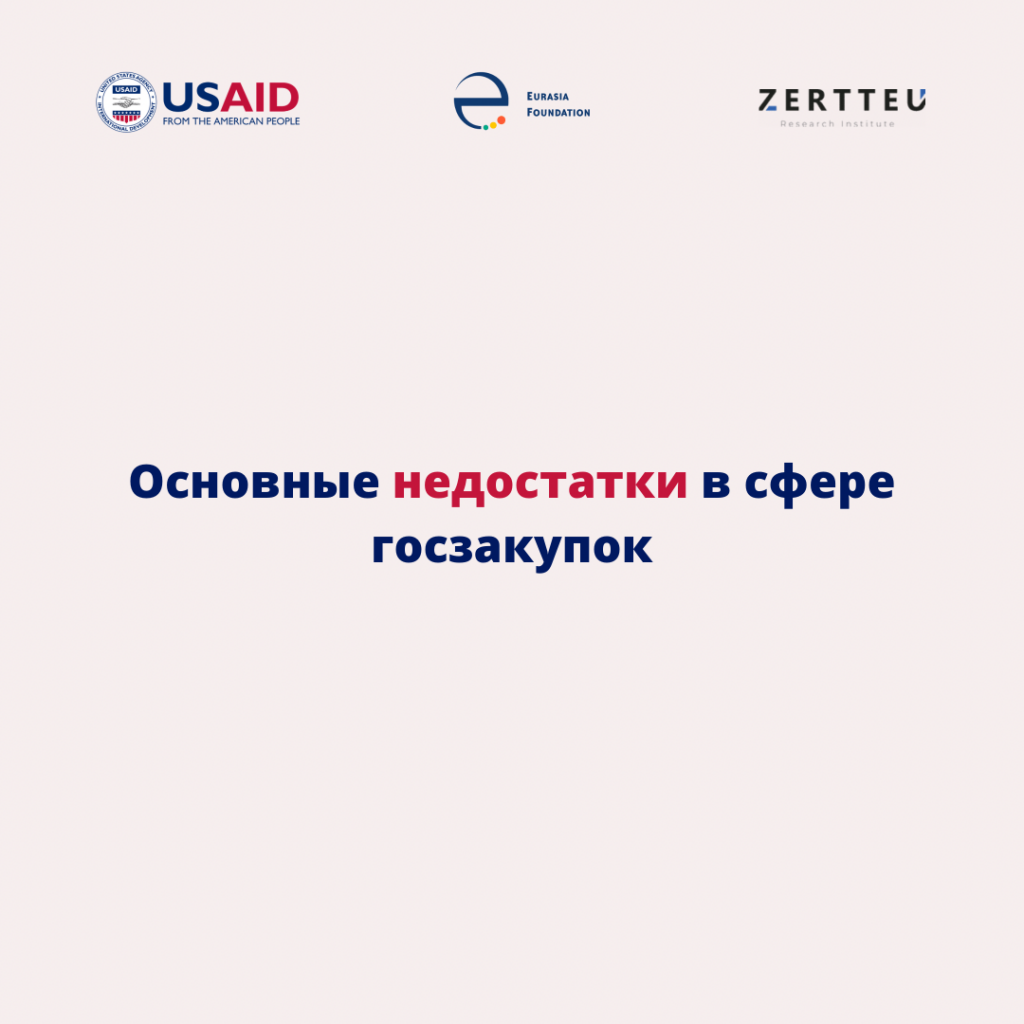
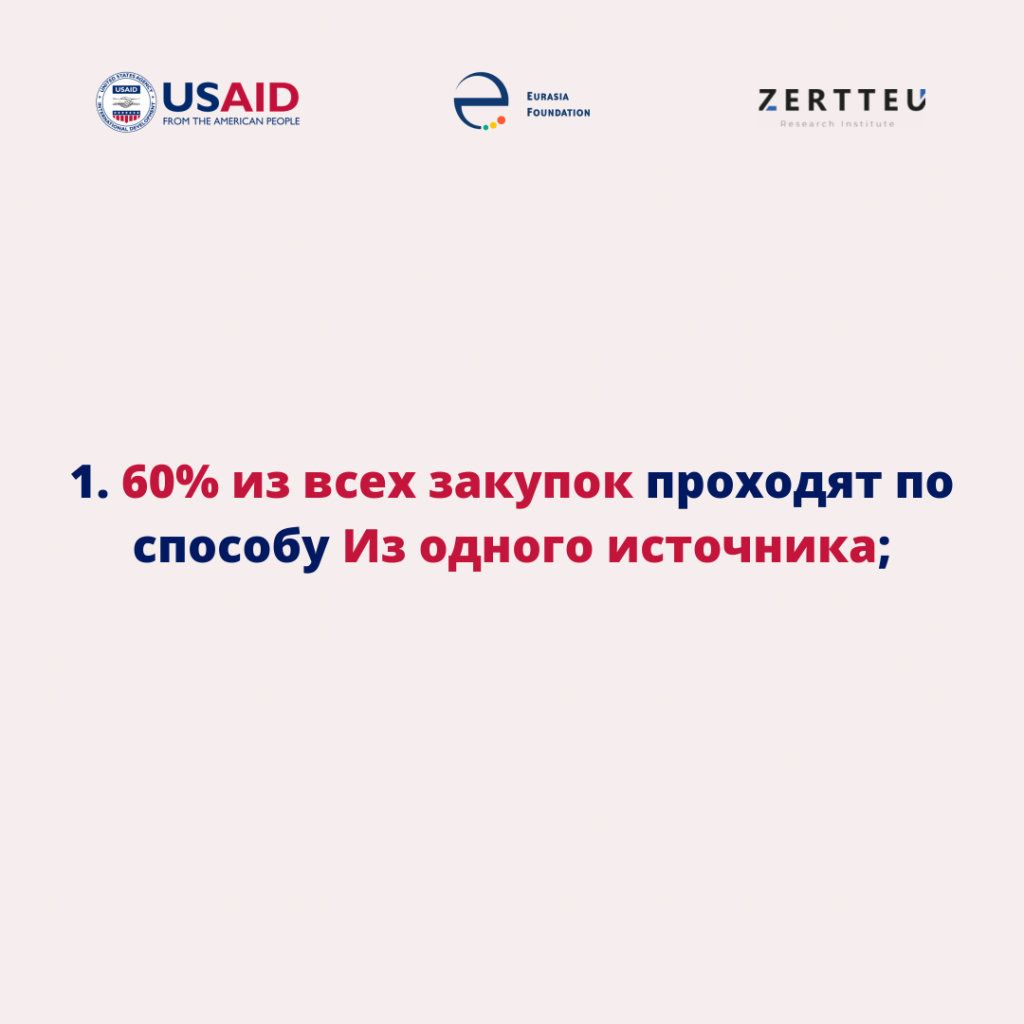
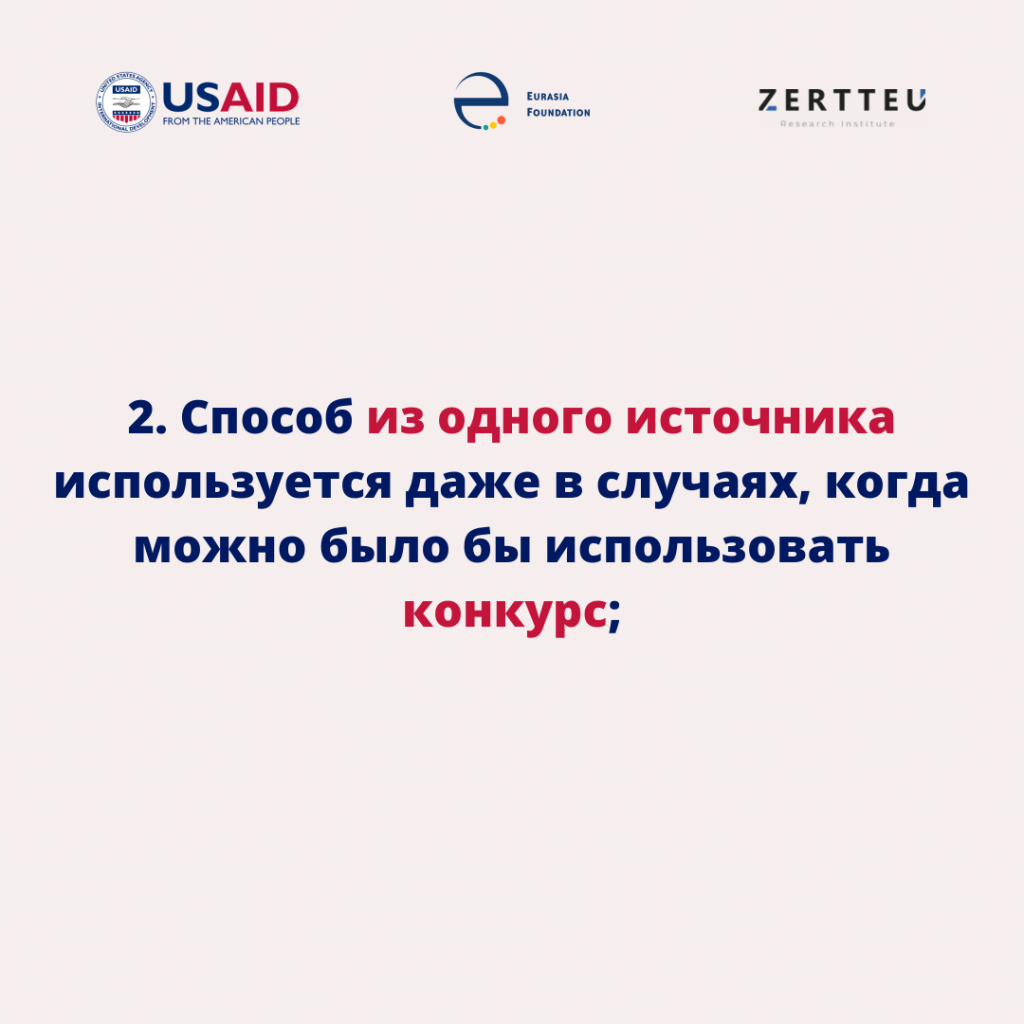
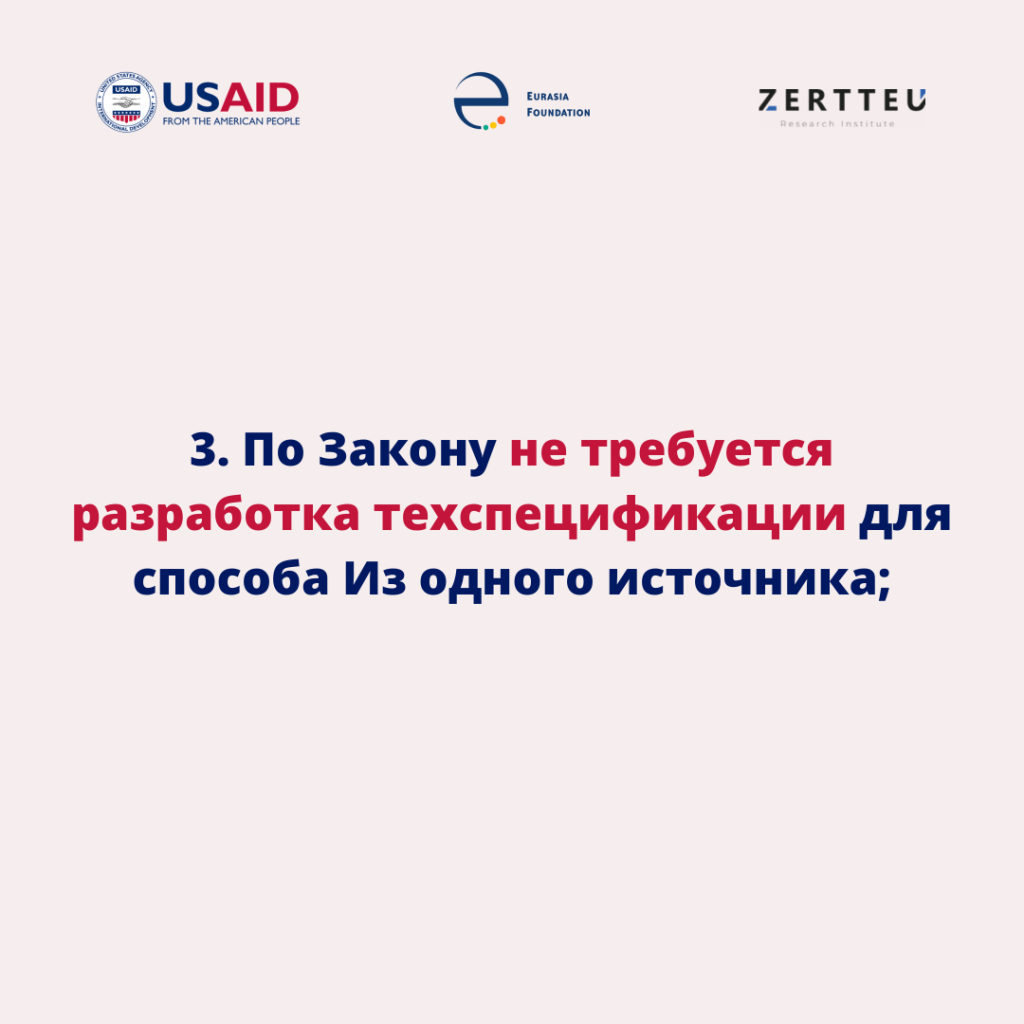
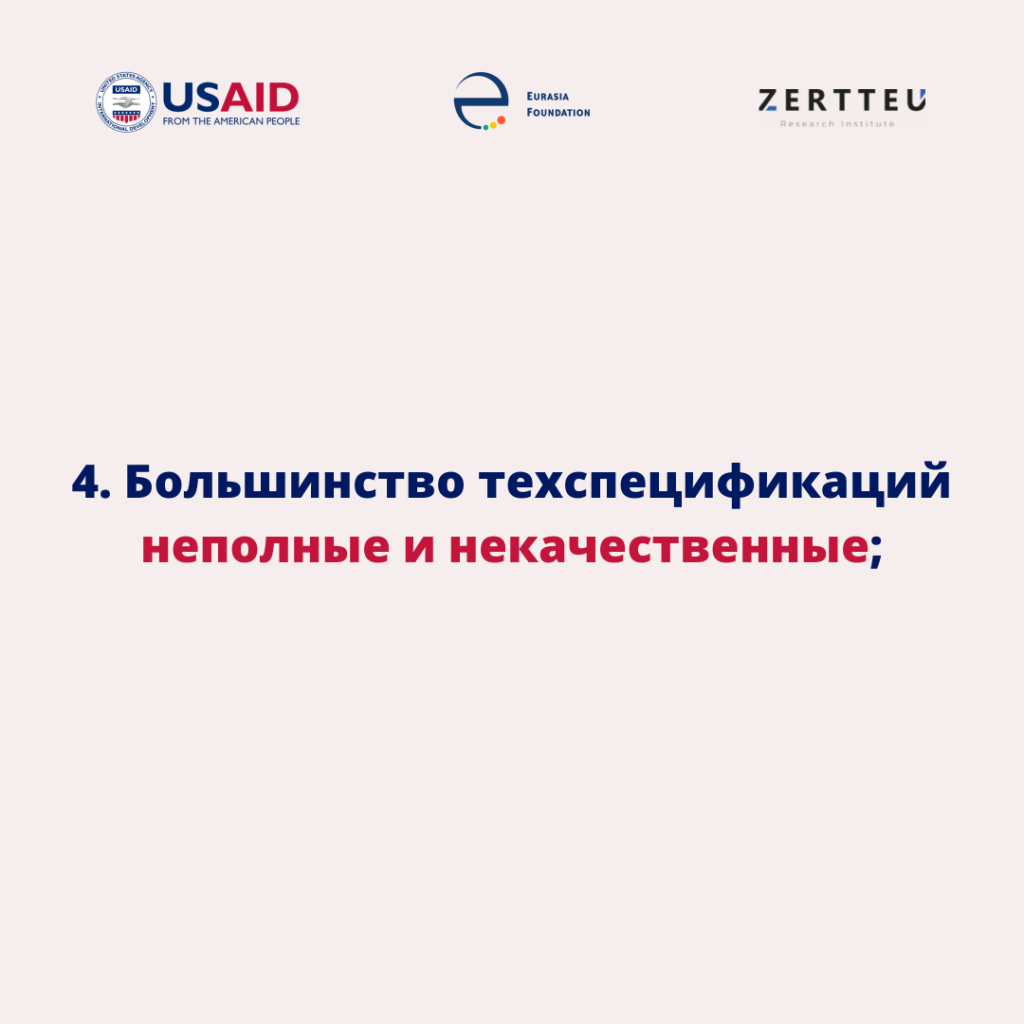
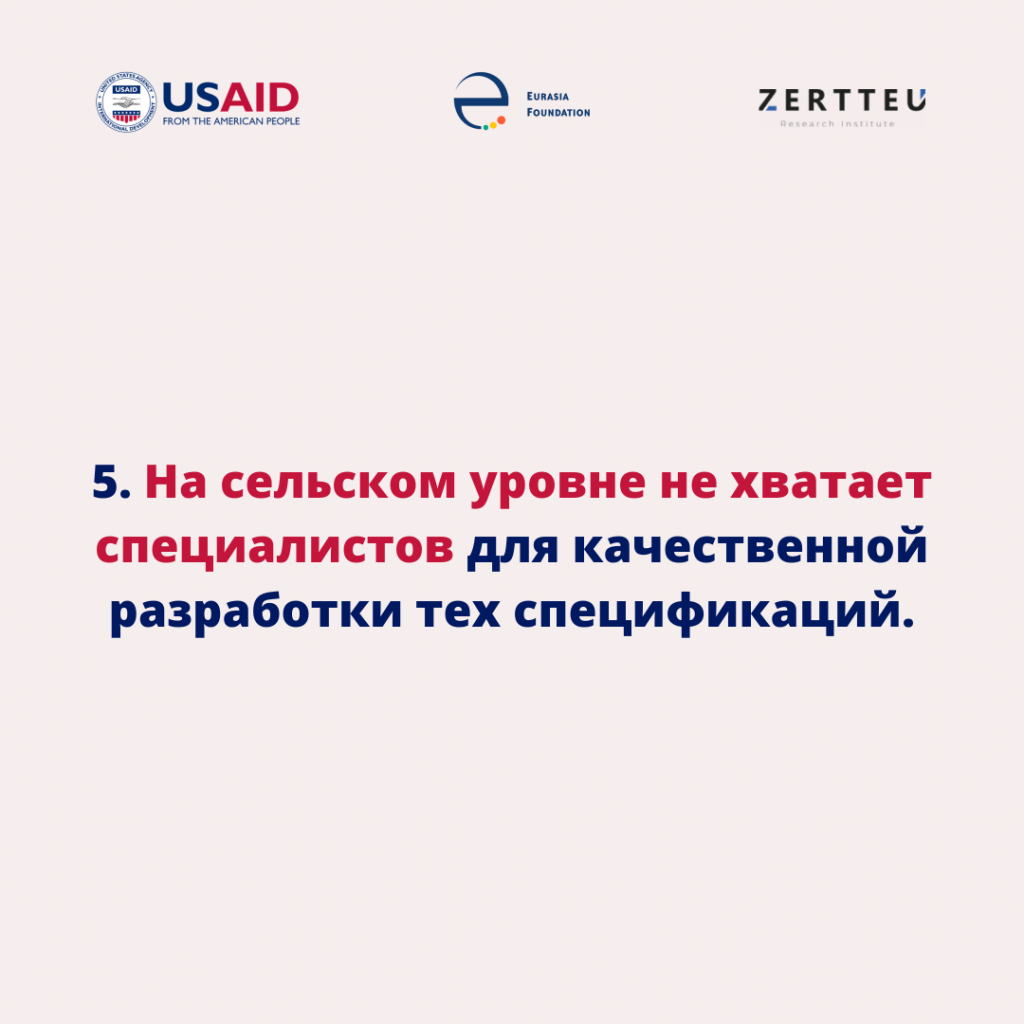
Based on our discussions, we’d like to share the following recommendations on public procurement:
- Ensure transparency in the procurement cycle from planning to execution of contracts, not only through the publication of information and documents but also by publishing information as structured open data. This also applies to procurement conducted by quasi public sector.
- Ensure compliance with transparency requirements and establish real liability for procuring agencies who fail to publish sufficient information and data at every stage of the public procurement process.
- Update procurement legislation to ensure that the procuring entity is required to develop and openly publish technical specifications.
- Refrain from narrowly limiting the oversight function to comply with transparency requirements. It is necessary to strengthen monitoring and audit procedures based on the best practices of a risk-based approach, with the availability of a large amount of data and qualified experts in this area. IT tools should be developed to identify corruption risks and potentially ineffective use of funds to minimize abuse at each stage of public procurement.
- Regularly organize randomized monitoring of technical specifications by supervisory agencies to verify their completeness and compliance with all the legislative requirements.
- Promote broader public oversight into public procurement for the media, NGOs and interested residents (including at the rural level) to ensure effective budget spending. Interactions between procuring entities and supervisory agencies that are open to the public will increase transparency, integrity and efficiency in public procurement.
In addition, we highlight the following specific recommendations.
Apply public procurement legislation equally to all agencies
During the pandemic, the most significant spending and procurement happen in the health care sector. While information about medicine prices is generally available throughout the region, in Kazakhstan, citizens will have a hard time finding out details about procurements conducted by SK-Pharmacy, the country’s medicine purchasing agency. In addition, oversight and accountability in the public procurement sector are often selective rather than systemic and preventative in their nature.
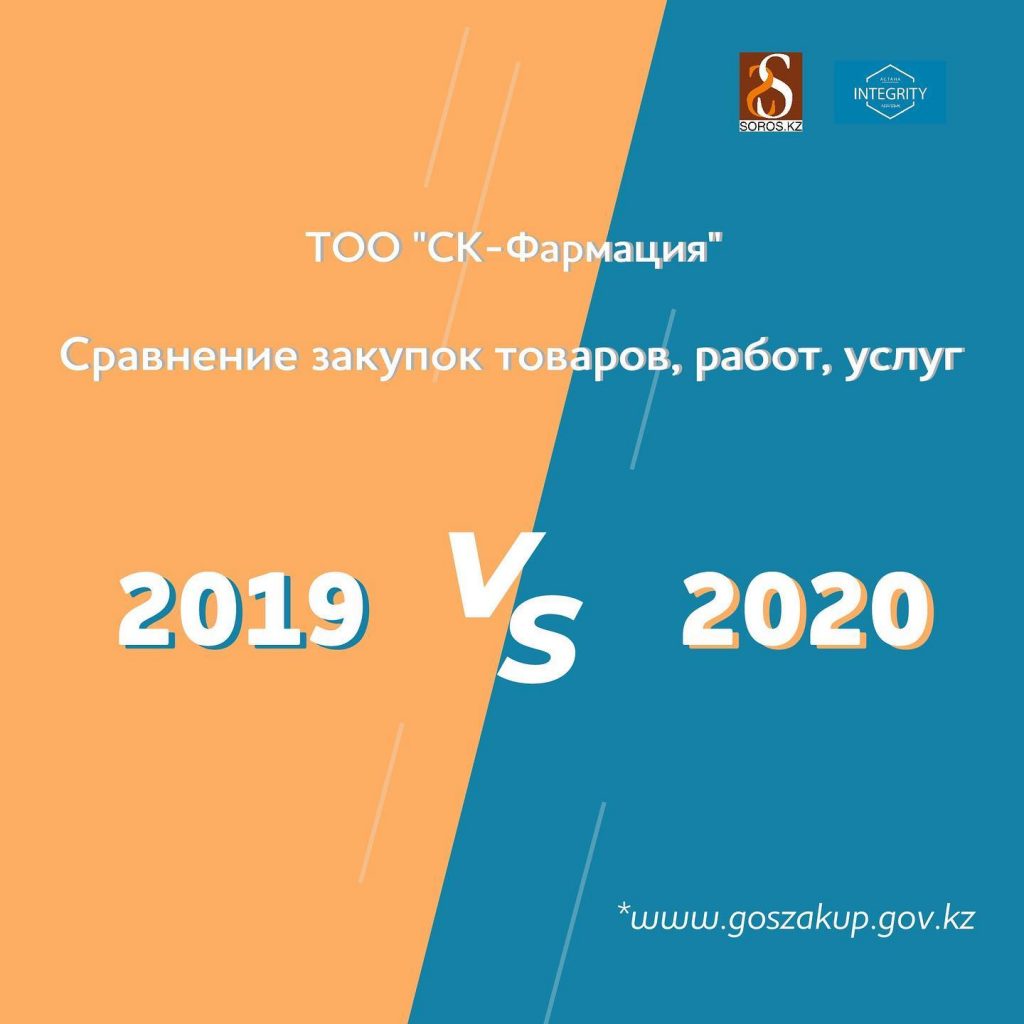
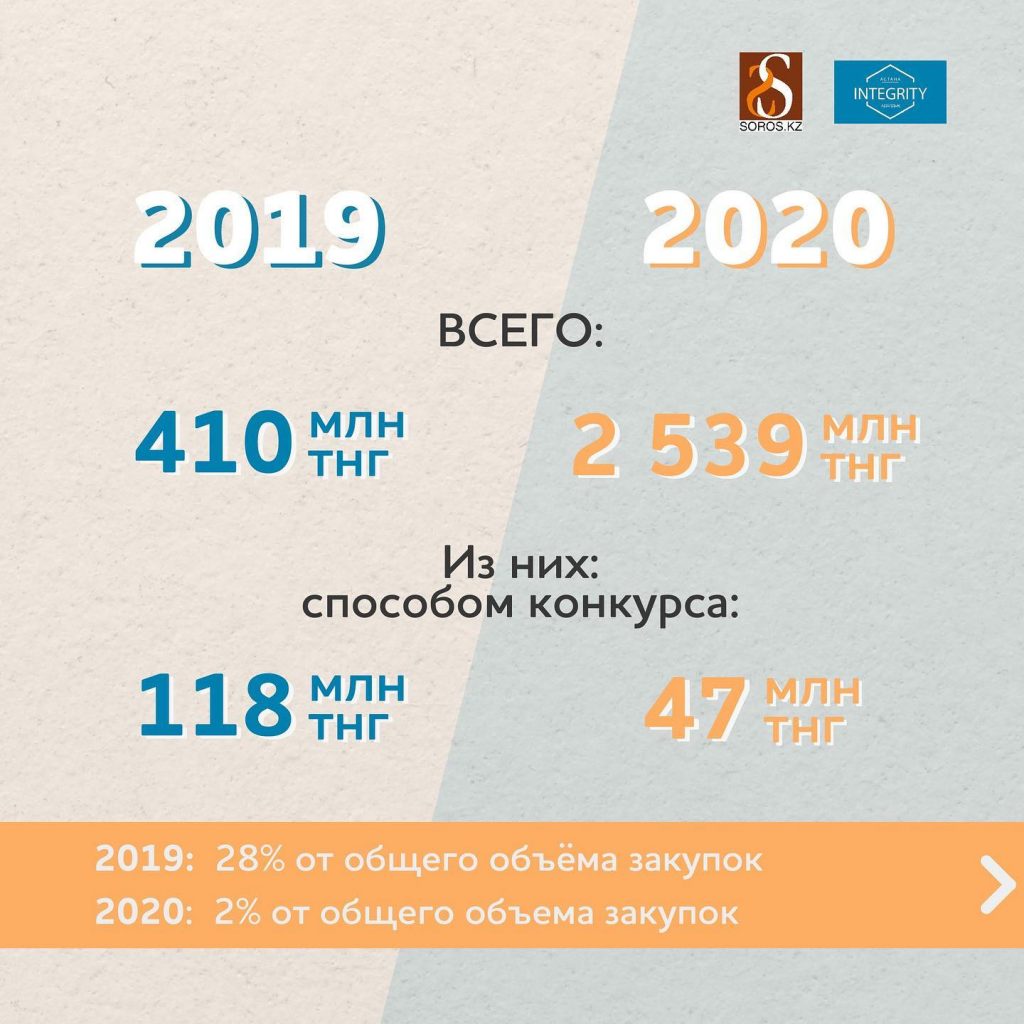
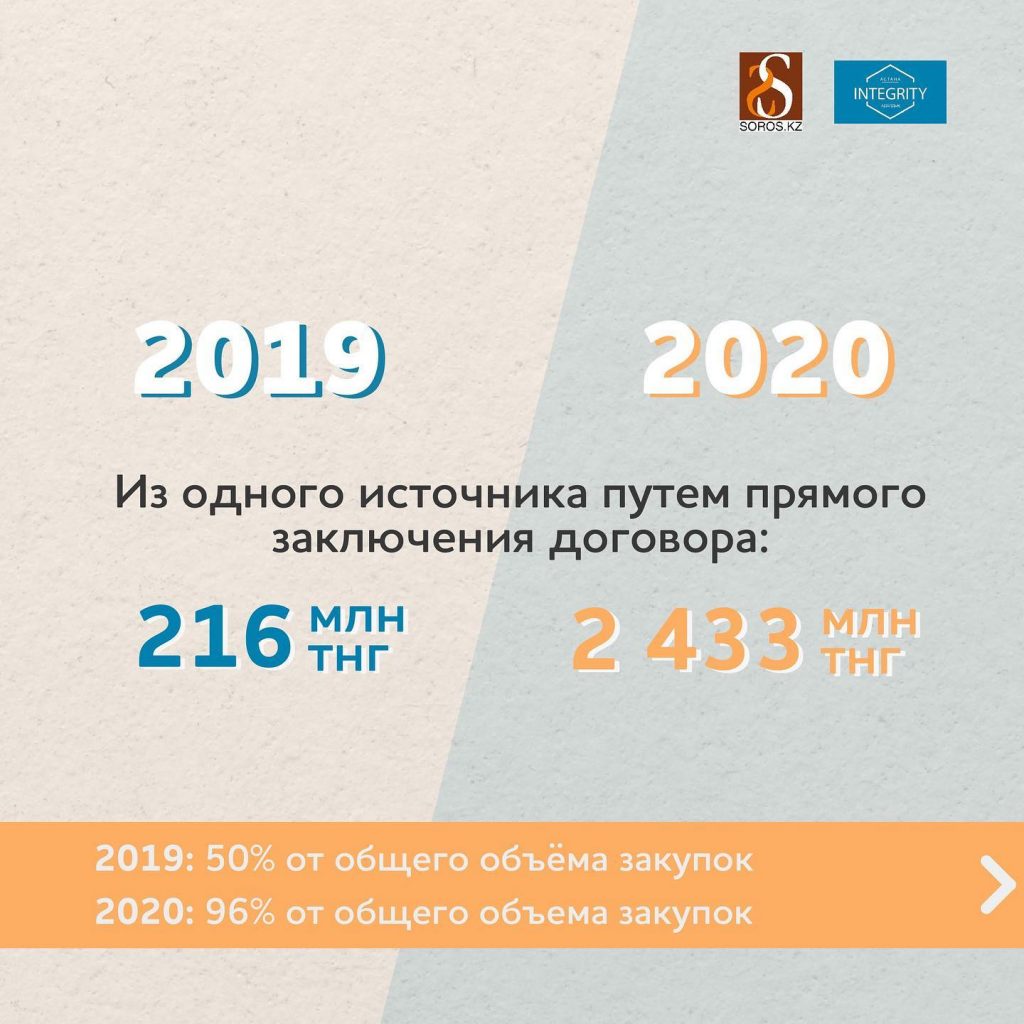
Our recommendations are as follows:
- Include the healthcare sector under the purview of the Law “On Public Procurement”. This will help ensure consistency throughout all of the country’s public procurement.
- Digitize all procurement by SK-Pharmacy through the country’s existing electronic public procurement system in order to ensure transparency and efficiency and promote competition. If the necessary functionality is not available, ensure its prompt development by the Center for Electronic Finance.
- E-procurement in the health care sector should include the publication of plans, announcements, documents and declared prices of suppliers, protocols of bidding results and contracts concluded with all conditions and final prices per unit of goods or services (with separate indications of the logistics component in the price, if any).
- Items with product designation, unit price, units of measure, international non-proprietary name, number of units, price with VAT included and not must be available in a machine-readable format.
- All the specified information and data on procurement by SK-Pharmacy must be available in an open data format through the open API from the Center for Electronic Finance, which enables detailed market analysis and public monitoring and oversight including of patients.
Reduce direct contracting
But single-source procurement still accounts for a significant part of public spending in the region. National legislations throughout the region include many exceptions to public procurement laws, which enable procuring agencies to evade competitive procurement procedures. Compared to non-competitive procedures such as direct awards, competition reduces costs by up to 10%.
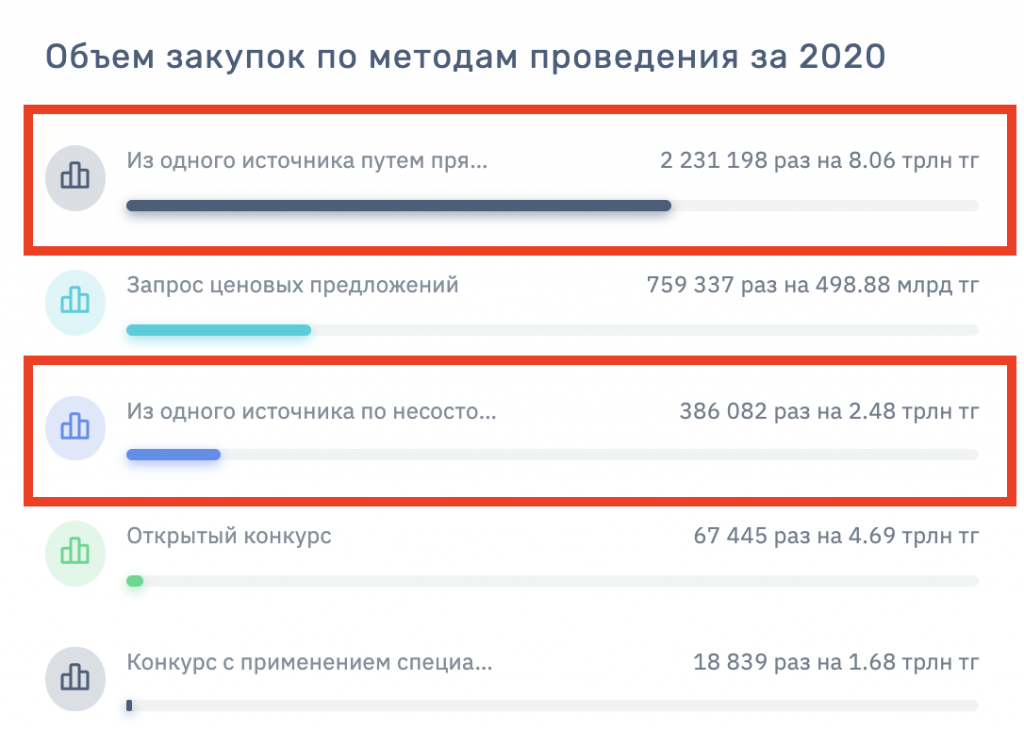
Our recommendations are as follows.
- Revise legislation to reduce the number of exceptions to the Law on Public Procurement to limit the ways in which agencies can circumvent competitive procurement.
- Strengthen public control over schemes where procuring agencies deliberately avoid competitive procedures (e.g. by breaking down the procurement item into components or made-up justifications for the lack of competition). Ensure real liability for such violations.
Invest in skills and business intelligence
A major problem in the region is the low skill-level and motivation of public procurement officers. Many agencies still consider these public servants as mere bureaucrats rather than a real opportunity for strategic development. There are no high-quality training and professional developments programs for procurement officers. If public procurement officers are trained in more than just the legislation and, for instance, are upskilled to conduct procurement management, in particular, through practices of strategic planning, category management, andsupplier relations. This will make public spending more efficient. Availability of procurement data in machine-readable formats has paved the way for new business intelligence tools, which may significantly improve not only the performance of procurement officers but also the quality of management decisions and oversight into subordinate organizations.
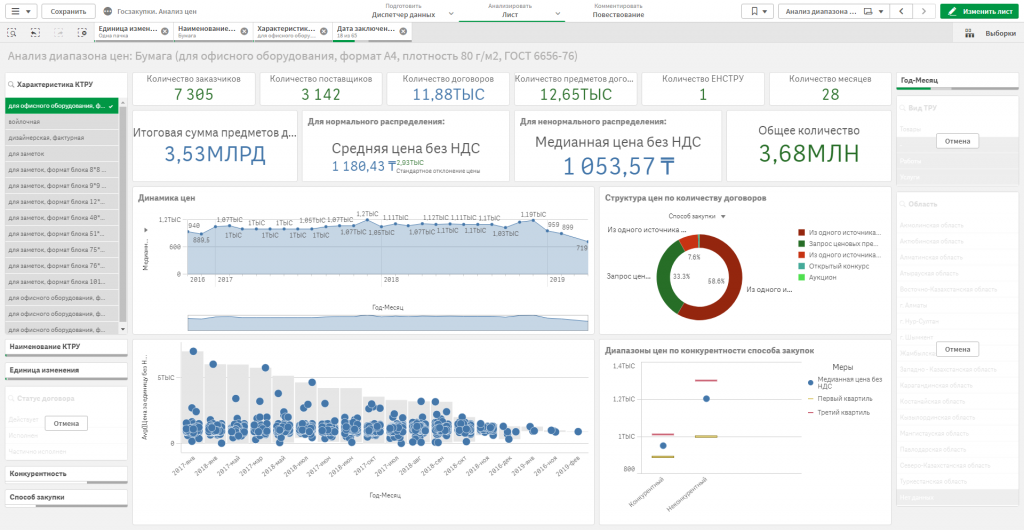
Our recommendations are as follows.
- Regularly improve the skills and competencies of procurement officers, especially at the municipal and regional level, who lack access to best practices and regulations employed by the centralized agencies.
- Train procurement officers in skills that go beyond laws and regulations such as strategic planning, category management, supplier relations, ethical standards in public procurement, and use of business intelligence tools.
- Develop key requirements for necessary skills and qualifications needed by procurement officers and eventually form a professional standard on this basis to ensure a higher level of professionalization in public procurement. It is necessary to make changes in the regulatory and legal field in the classifier of professions and open an opportunity for higher education institutions to develop relevant training programs.
Simplifying and standardizing procurement
Government procurement in the region is fairly decentralized, which means that many regional and rural organizations are forced to procure a standard set of goods themselves, without template technical specifications. This significantly increases procurement officers’ workload and reduces the efficiency of public spending.
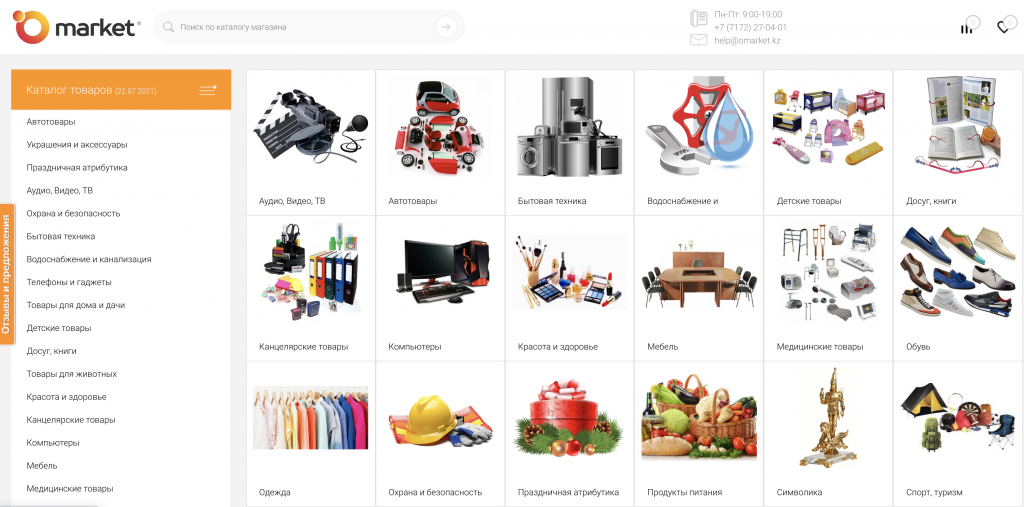
Our recommendations are as follows.
- Analyze the feasibility of centralizing procurement either on a regional basis or on a sectoral basis (for example, health care, education, IT, etc.). If justified, centralize procurement to improve accountability and efficiency.
- Ensure the development of national standard technical specifications for the most popular goods and services and their integration into regional electronic systems.
- Where possible, launch electronic catalogs (electronic stores) to facilitate the procurement of standard goods and services under the best terms on the market.
Civil society is a crucial stakeholder in an effective and efficient public procurement sector. We look forward to a constructive dialogue with the authorities and are ready to further provide our support to increase transparency, accountability, and efficiency in public spending in Central Asia and beyond.